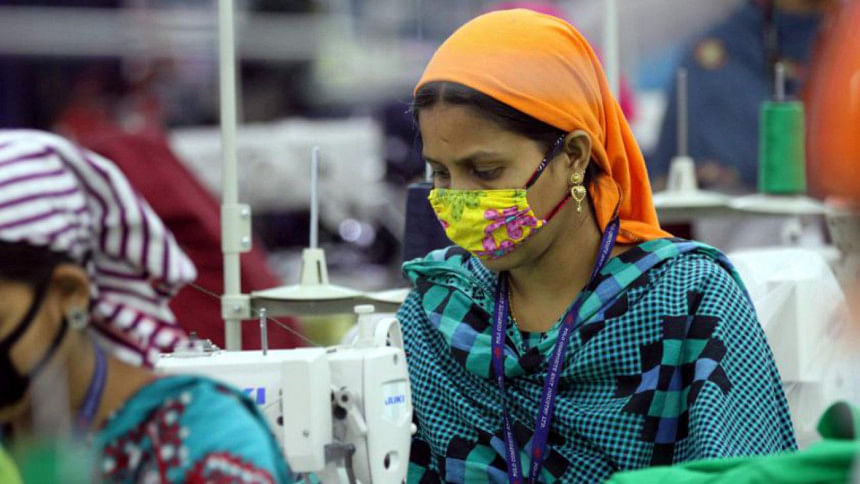Empowering female RMG workers

Despite the progress we have made in terms of workplace safety post-Rana Plaza, there is much more to be done to provide a decent, women-friendly working environment for female RMG workers.
The problems are manifold. Sexual harassment and verbal abuse at the workplace and the threat of automation are some of the major issues yet to be addressed. A roundtable discussion on the situation of women workers in Bangladesh jointly organised by this paper and Manusher Jonno Foundation brought forth a number of other pressing problems which pertain particularly to female RMG workers and which need immediate attention.
When it comes to harassment at the workplace, both the government and factory owners ought to come together and take a zero-tolerance approach to end this practice once and for all. All factories should have a transparent mechanism whereby female workers who experience harassment of any kind can lodge complaints without the fear of retaliation. Gender-sensitive training for all employees of a factory is a must. Automation has emerged as a big threat and thus factory owners should provide skills training to women workers so that they are able to operate modern machinery.
Another problematic finding is that 44 percent of working women are raising their children without daycare centres at the workplace. If factory owners are seriously committed to the welfare of our female workers, they must do their part and provide daycare centres for all working mothers, in addition to adequate healthcare benefits for all workers.
Furthermore, we still have factories which do not give workers proper appointment letters and IDs at the time of joining. This practice is particularly high among factories not affiliated with BGMEA and BKMEA. The Department of Inspection for Factories and Establishment must look into these anomalies and take corrective action.

 For all latest news, follow The Daily Star's Google News channel.
For all latest news, follow The Daily Star's Google News channel. 



Comments